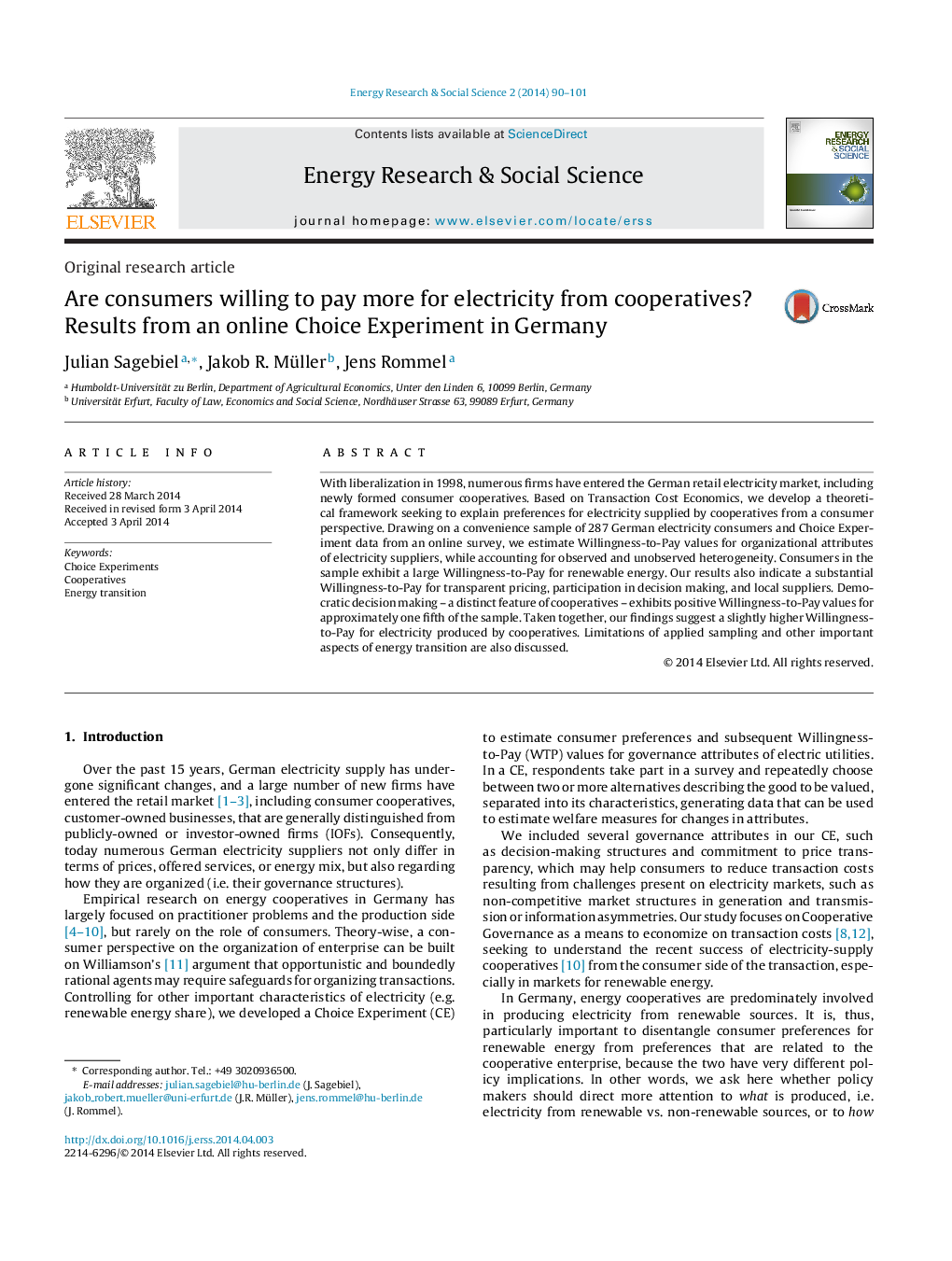| Article ID | Journal | Published Year | Pages | File Type |
|---|---|---|---|---|
| 6558995 | Energy Research & Social Science | 2014 | 12 Pages |
Abstract
With liberalization in 1998, numerous firms have entered the German retail electricity market, including newly formed consumer cooperatives. Based on Transaction Cost Economics, we develop a theoretical framework seeking to explain preferences for electricity supplied by cooperatives from a consumer perspective. Drawing on a convenience sample of 287 German electricity consumers and Choice Experiment data from an online survey, we estimate Willingness-to-Pay values for organizational attributes of electricity suppliers, while accounting for observed and unobserved heterogeneity. Consumers in the sample exhibit a large Willingness-to-Pay for renewable energy. Our results also indicate a substantial Willingness-to-Pay for transparent pricing, participation in decision making, and local suppliers. Democratic decision making - a distinct feature of cooperatives - exhibits positive Willingness-to-Pay values for approximately one fifth of the sample. Taken together, our findings suggest a slightly higher Willingness-to-Pay for electricity produced by cooperatives. Limitations of applied sampling and other important aspects of energy transition are also discussed.
Related Topics
Physical Sciences and Engineering
Energy
Energy (General)
Authors
Julian Sagebiel, Jakob R. Müller, Jens Rommel,
